Capcom is home to some of the most instantly-recognizable and beloved video game characters ever. From the World Warriors of Street Fighter to Mega Man to the various survivors of Resident Evil, there's no shortage of famous faces, but I've noticed that it's the second-stringers who develop the really rabid followings. Just look at the clamoring for a new Rival Schools game, or how everybody wants Skullomania to return to Street Fighter, or, well... Strider Hiryu.
An arcade staple in the early '90s, Strider was a fast-paced, ferociously difficult platformer that took us on a trippy (and ludicrously violent) ride through Kazakh City, a place that was sorta-Russia, mostly-dystopian cyberpunk wasteland. Unable to replicate the arcade's huge sprites and fast gameplay, the NES version of Strider changed things up by making the game a Metroid-like adventure game. Aside from appearances in the Marvel vs. Capcom games, Strider Hiryu disappeared for a long while until his return in 1999's Strider 2 for arcade and PS1. And then just like that, it was time for Strider to vanish again.
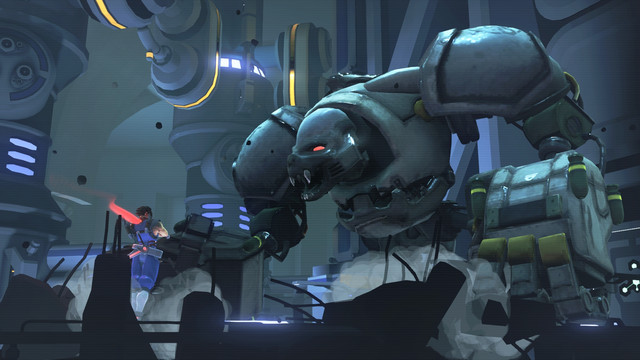
Now, in 2014, Strider returns to PC, PS3, PS4, Xbox 360 and Xbox One in a game that meshes the best features from all three games into one. I guess what really surprised me is that the game's developers--Double Helix--aren't really known for exceptional quality. I mean, Killer Instinct is okay and all, but KI was always regarded as a broken, button-mashy fighter. Strider had the pride of some pretty hardcore platformers (and one underrated Metroid clone) to live up to, and thankfully, this reboot delivers.
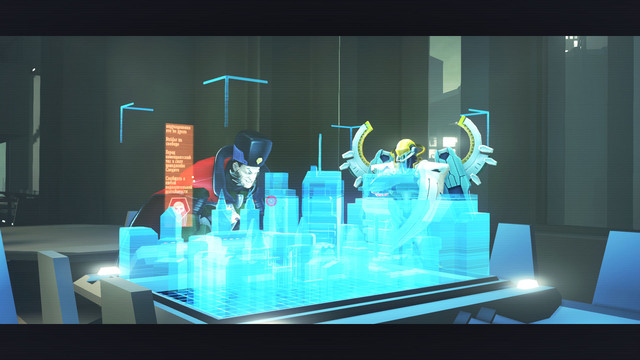
Strider Hiryu is tasked with killing Grandmaster Meioh, a despotic (and maybe not entirely human) ruler who has Kazakh City firmly under his heel. Of course, it's not going to be easy--Meioh has his entire army on alert, and Hiryu will have to not only survive that, but a gauntlet of bounty hunters, countless minibosses, and a series of fierce, elite opponents known only as the Four Winds. Combat requires you to be nimble, accurate, and knowledgeable of your enemies' patterns--just attacking haphazardly is a good way to get yourself killed.
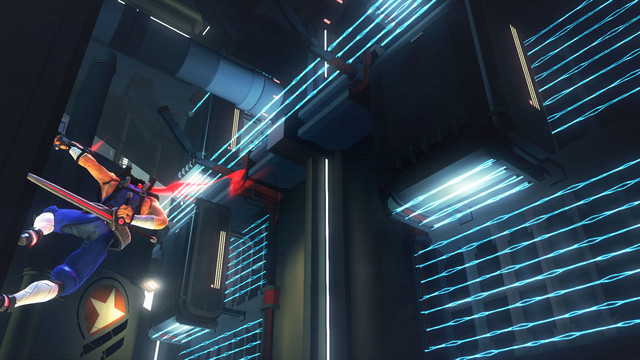
While your objectives change and you're constantly on the move, Kazakh City is one big map, with a lot of locked doors and sealed-off passageways. As you defeat bosses and reach checkpoints, Strider's abilities will grow, from the useful (a double jump and a slide maneuver) to moves that seem broken but are actually necessary (it's helpful to be able to reflect back shots when enemies are this set on murdering you). There's a big sense of balance to the game's design that keeps pushing you forward, mixing in short stretches of solid platforming with hectic fights. Even an old-school gaming convention--respawning enemies--works in the game's favor, filling once-empty hallways and paths you've cleared with different groups of foes, always keeping the action fresh.
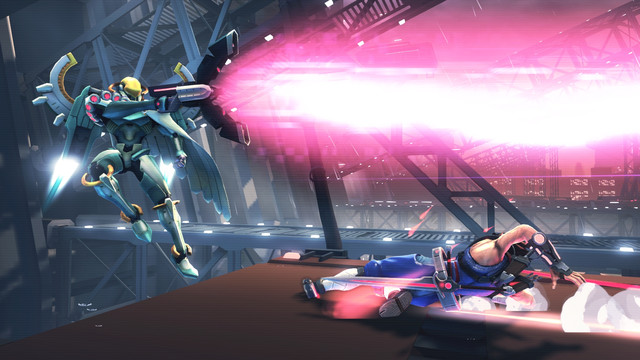
Strider excels on the gameplay front, but kind of drops the ball in terms of visuals. Character animations are smooth and the designs are cool, but overall, Kazakh City can be a little too dark--it works in a game like Mark of the Ninja where there's a big emphasis on sticking to the shadows and moving slowly, but in a balls-out action game like Strider, it just muddles your view and makes everything blend together. The platforming controls are great, but sometimes you're fighting against the game's visual design to try and figure out where to go next.
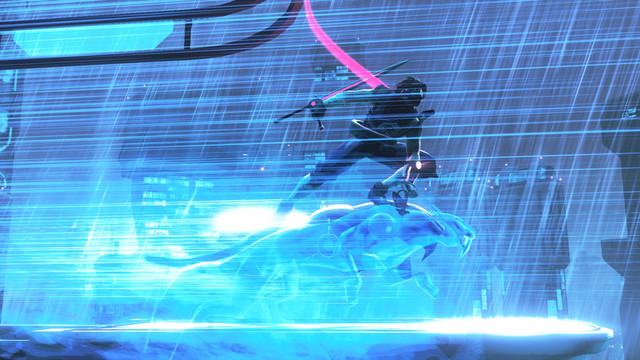
I actually set myself up pretty badly for Strider--truth be told, I didn't expect it to be very good, and I thought it couldn't possibly hold up to my expectations. Thankfully, I was wrong, and Strider provides a bracing challenge for experienced gamers, while giving players new to the franchise what I feel is the best possible introduction--a breakneck pace, fights where you make it out by the skin of your teeth, and plenty of exploration and platforming perfectly mixed in--it all adds up to one surprisingly excellent package.
REVIEW ROUNDUP
+ Tight, polished gameplay that has the perfect balance of platforming, exploration, and combat
+ Metroid-like progression gives you good reason to revisit areas you've already explored for further power-ups
+ Great boss fights require a mix of pattern memorization, fast reflexes, and flexible thinking
+/- Somewhat forgiving difficulty, especially for a series that's known for being ruthless
+/- There's plenty to unlock, but the game itself is pretty short--in the 5-6 hour range
- Visuals are almost too dark, which just doesn't work in a fast-paced action game
Read more here: Crunchy Roll
No comments:
Post a Comment